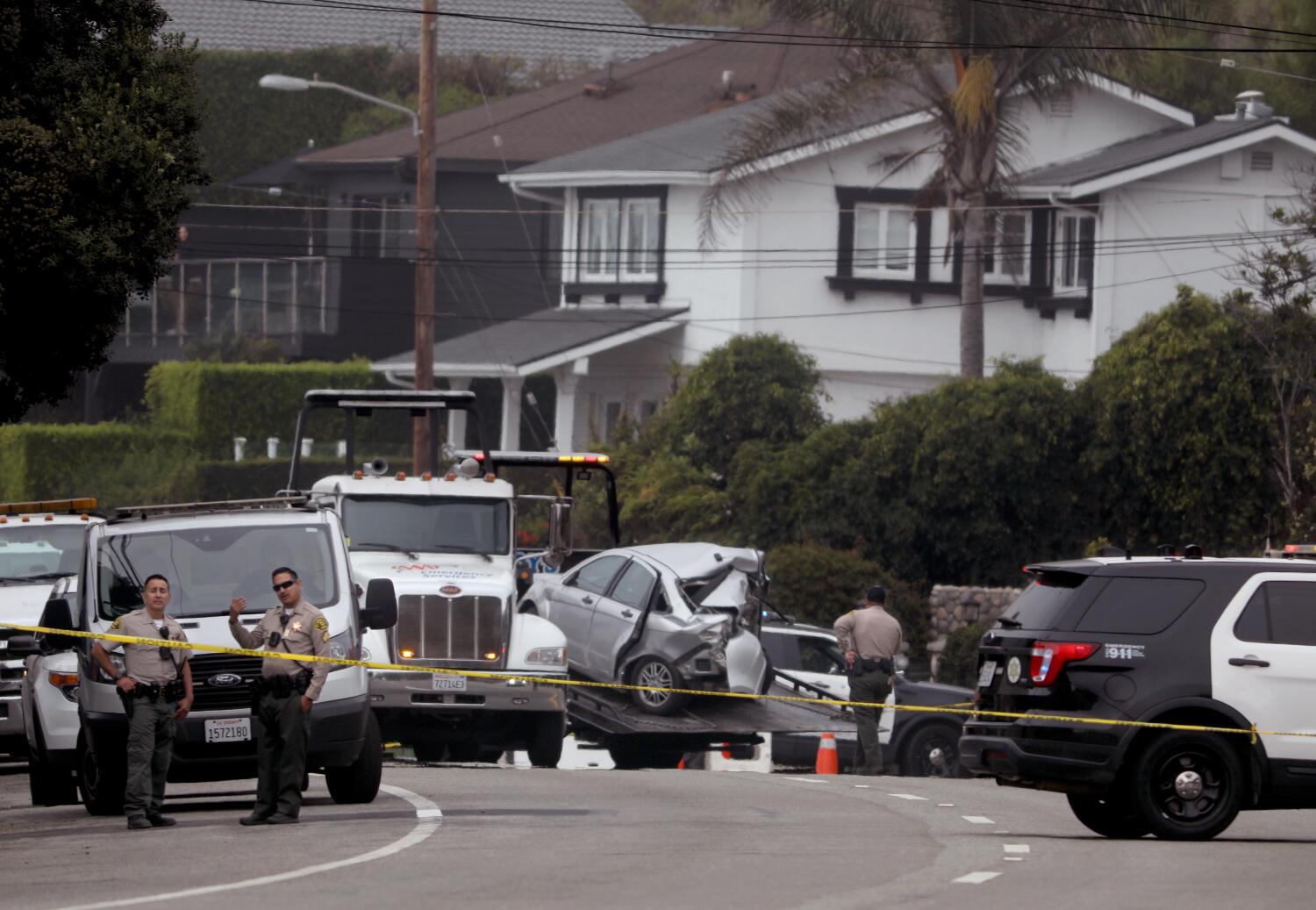
After the horrific Oct. 17 crash on Pacific Coast Highway that killed four Pepperdine students, the Malibu community pleaded with the City Council to do more to stop speeding drivers, whose recklessness often results in injuries and deaths.
The city’s latest effort to improve safety on the scenic but dangerous 21-mile stretch of PCH is to add a task force dedicated to patrolling the highway for the next year and a half.
In January, the City Council approved a contract with the California Highway Patrol to establish a three-officer unit to patrol the Pacific Coast Highway within city limits. The contract will expire in June 2025.
Fatal accidents have plagued Malibu for decades. A Times analysis after the October crash found that there were 170 deaths and serious injuries to drivers, passengers, cyclists and pedestrians between 2011 and 2023.
PCH is a state highway, so it falls under the jurisdiction of Caltrans, which limits the changes the city can make to the highway. But in the last three months, Caltrans has begun construction on a new traffic signal synchronization project that allows the agency to remotely monitor traffic signals on the highway, synchronize their timing and adjust them to reduce traffic speeds and reduce the congestion.
In November, the Malibu City Council declared a local emergency, allowing the city manager to quickly approve a short-term contract with the CHP to immediately beef up patrols. Those patrols will end this month, just as the longer-term task force begins.
There are still projects in the pipeline. A $4.2 million Caltrans contract approved by the state in December will allow the agency to establish speed information signs and pavement speed limit markings, replace safety signs in corridors and improve curve striping.
The California Highway Patrol stopped patrolling PCH in Malibu in 1991 when the city incorporated, and Malibu contracted law enforcement with the Los Angeles County Sheriff’s Department. Now, the extra patrols are welcomed by city officials and law enforcement at a time when many in the community are feeling desperate.
“We’re always happy to have more control, especially when we have … speeding that endangers the community,” said Jennifer Seetoo, captain of the Los Angeles County Sheriff’s Department’s Malibu/Lost Hills station.
Seetoo told the Times on Tuesday that he believes the “three E’s, that is, law enforcement, education and engineering,” are necessary to make the highway safe.
The new CHP task force is an essential aspect of law enforcement, Seetoo said, but it also wants radars.
In October, Gov. Gavin Newsom signed into law a speed camera pilot program, but Malibu was not among the cities where cameras would be installed. However, state Sen. Ben Allen (D-Santa Monica) and Assemblywoman Jacqui Irwin (D-Thousand Oaks) are working on legislation to install cameras in Malibu, Seetoo said.
In the meantime, traffic safety on PCH remains a priority for residents and a priority for council members.
At the most recent City Council meeting, residents who spoke said raising awareness is vital to protecting the neighborhood.
“If this is a war on recklessness,” said one commentator, “we have to target hearts and minds.”
Some suggested putting up signs: “This place is worth going slowly,” “Slow down, you’re already here,” “Locals can tell you’re a tourist by speeding.”
However, only Caltrans-approved signs may be posted on power poles. Councilman Paul Grisanti suggested that businesses and homeowners along the highway allow large signs to be placed on their buildings to catch people’s attention.
Another commenter proposed that four volunteer drivers put signs on the back of their cars emphasizing the speed limit and then drive side by side on each side of the road.
The community’s passion for the topic is evident.
And, Seetoo told The Times, residents are cautiously optimistic.
After the death of 13-year-old Emily Shane, who was hit by a speeding driver while walking on PCH in 2010, “the community came together and wanted change,” Seetoo said. “And nothing happened, and I feel like this is the first time things have really happened.”
Times staff writer Terry Castleman contributed to this report.

